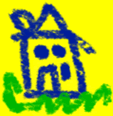




 |
|||||||||
 |
|||||||||
 |
|||||||||
 |
|||||||||
 |
|||||||||
Bus Topology
About Bus Topology as follows:
In a bus network, all nodes are connected to a common cable, called a
bus, using coaxial cable or twisted-pair cable. There is no central
computer or server, and the data transmission is bi-directional. Each
node transmits data to others through the common cable, and picks up
data sent to it from the same channel. All devices are connected to a
central cable,called the bus or backbone.
Advantages for the bus topology as follows:
use less cable, install easily, expand easily.
Disadvantages for the bus topology as follows:
troubleshoot difficulty, disrupt the part or the whole of the network when
one computer fails, slow down the network when the traffic is heavy.
Animation:
